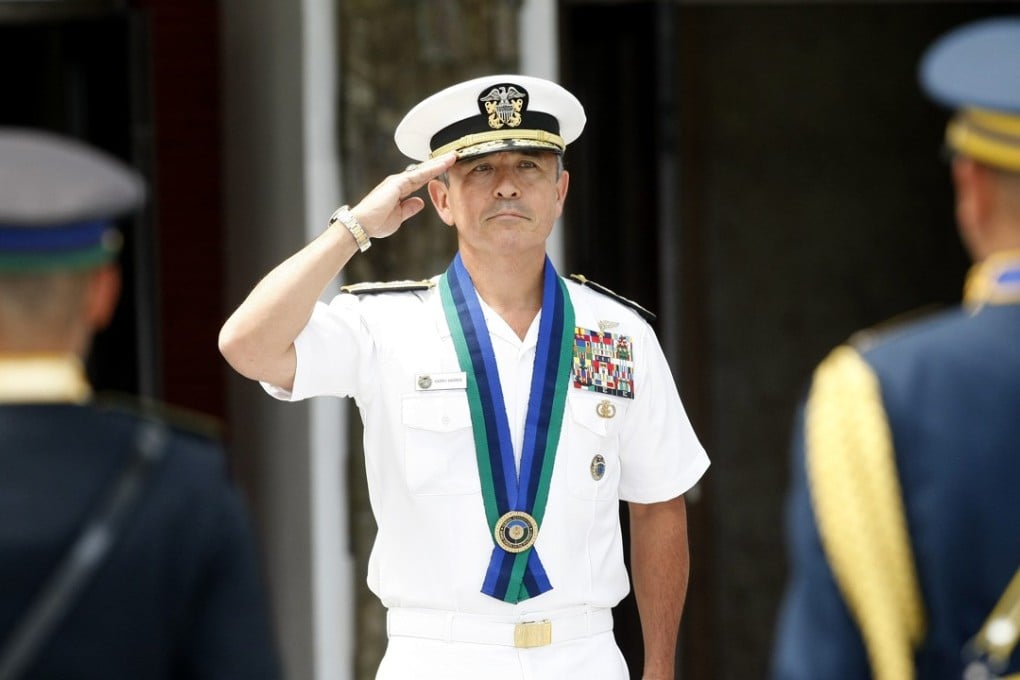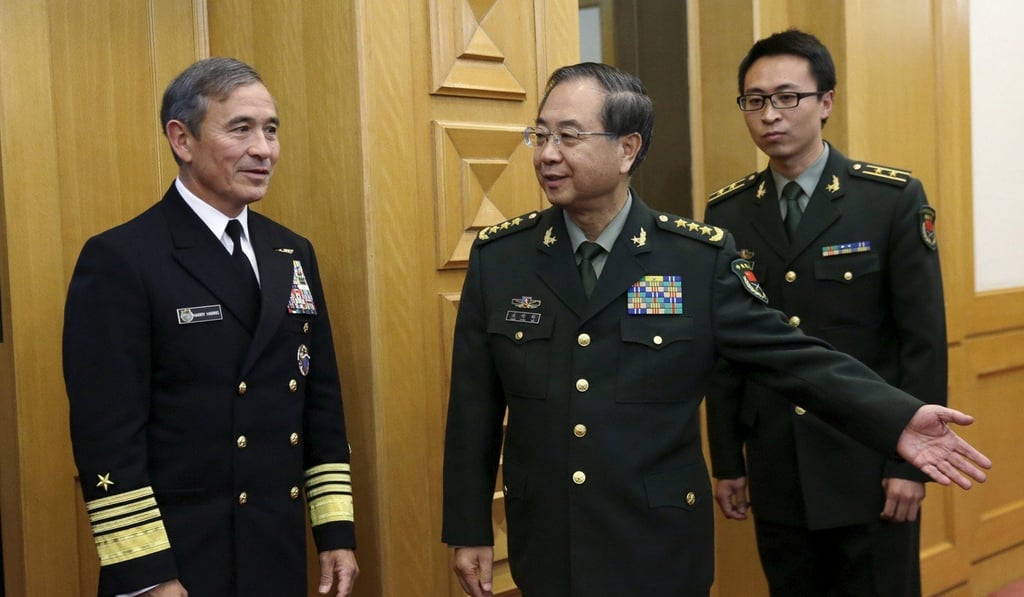US Pacific Commander Harris, who once called South China Sea island-building a ‘great wall of sand’, expected to step down next year
The appointment of Harry Harris’ successor will be closely watched by China and Washington’s allies in Asia

Admiral Harry Harris, the US Pacific military chief known for combative views on Beijing’s South China Sea expansion, is expected to step down next year, US officials said, leaving President Donald Trump to fill a key post closely watched by China.
Harris, who was appointed by President Barack Obama, could end his term as head of Pacific Command (PACOM) after three years in May, two sources with knowledge of the potential change told Reuters. Most PACOM commanders serve three years but there is no official term limit.
A US official said that while the timing could be right, the process of replacing Harris - starting with a nomination to the Senate Armed Services Committee - had not yet begun.
“That definitely hasn’t happened,” the official said, speaking on condition of anonymity. “I would guess it maybe happens in the winter sometime.”

“But it also depends on whether Trump and the White House have enough control over the military. Everyone knows towards the end of the Obama administration the White House’s Security Council could not very well control Harris,” he added.